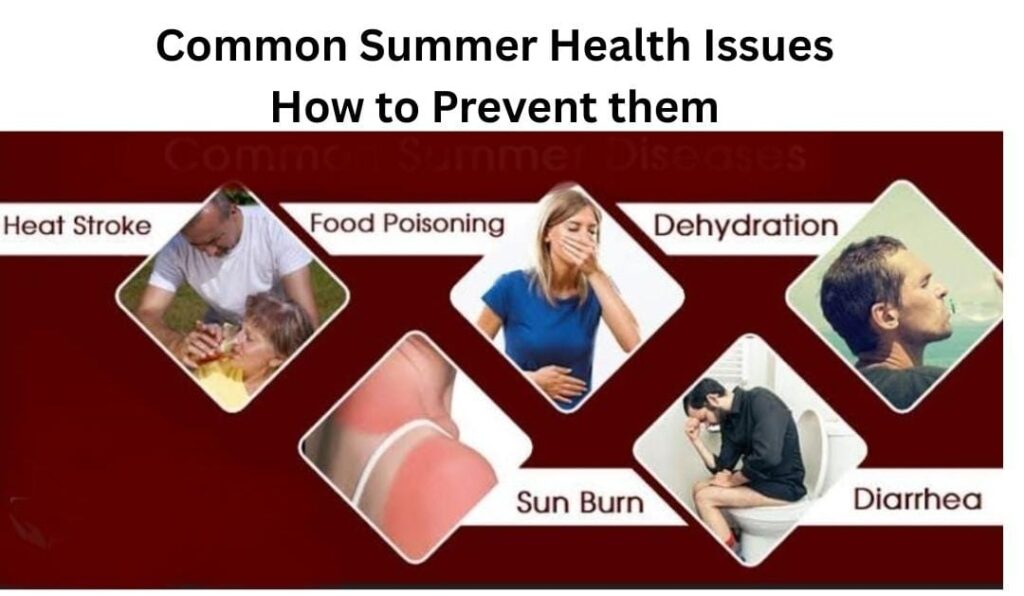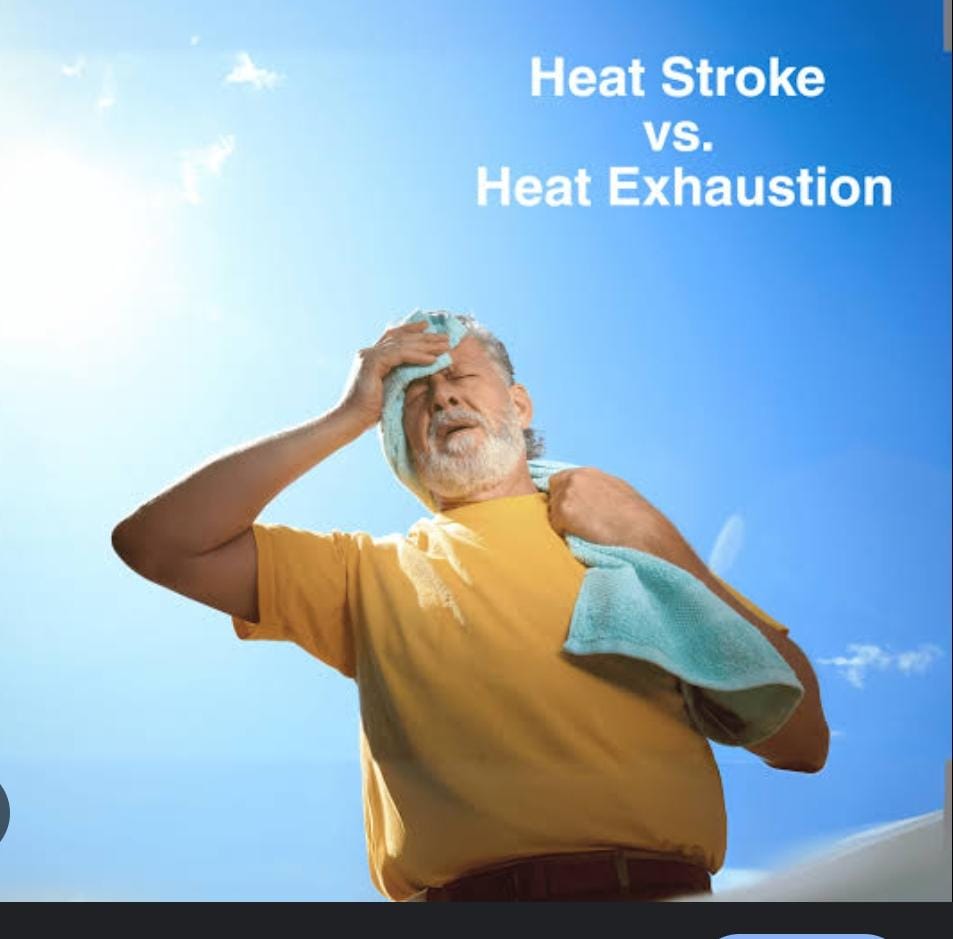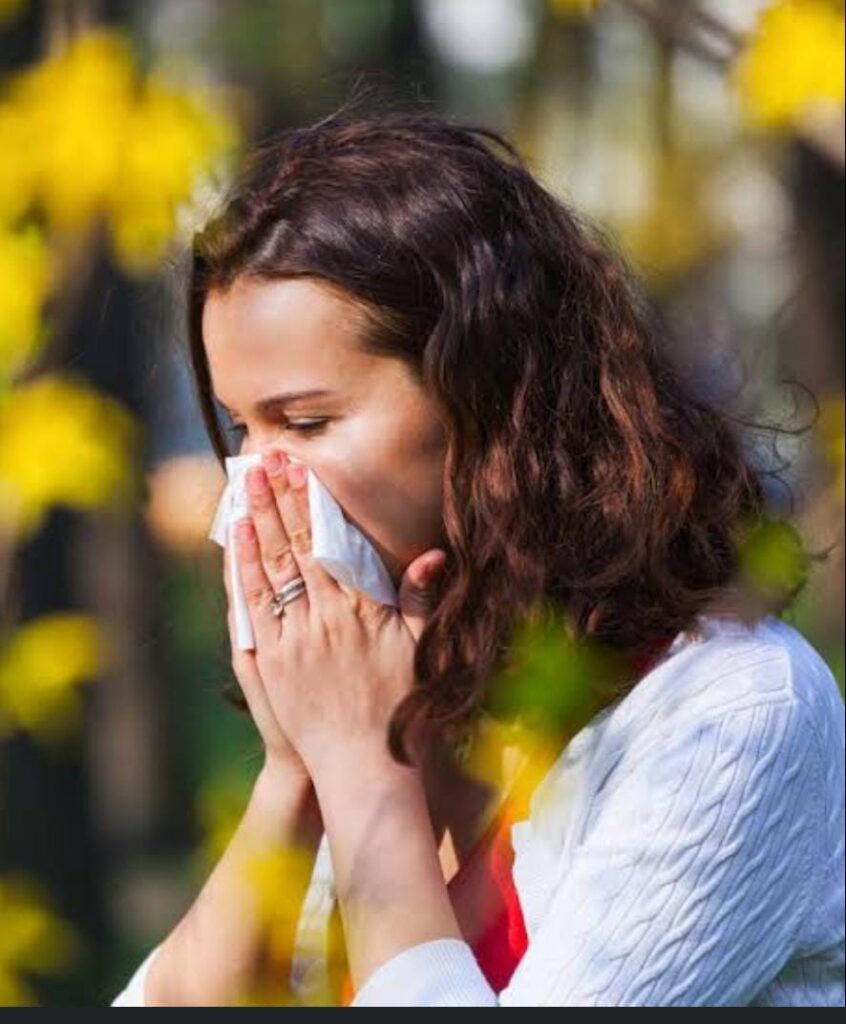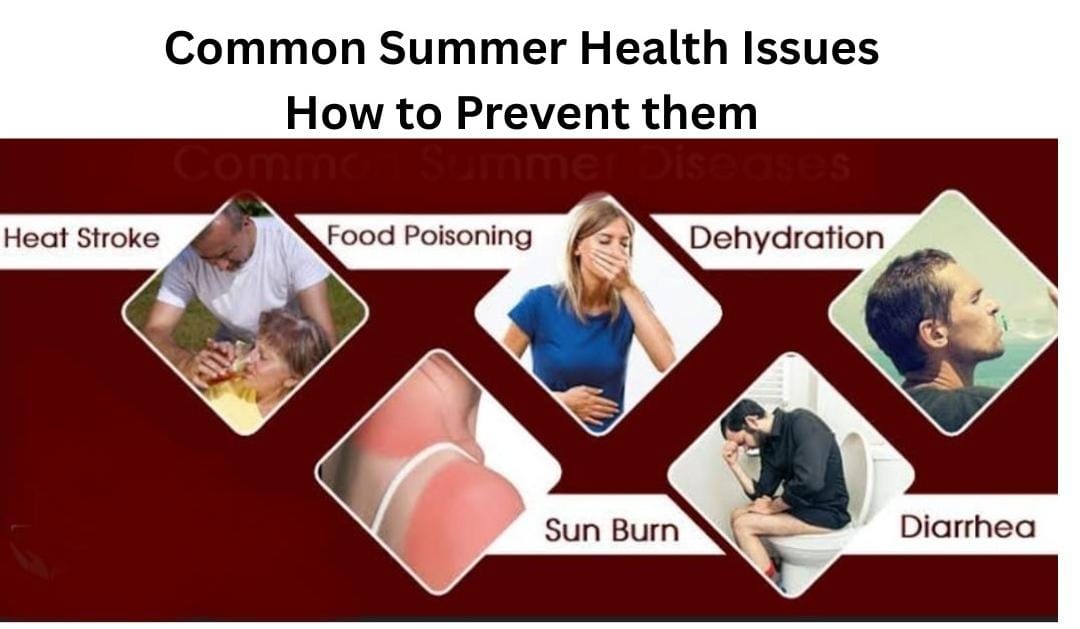Summer is a season of sunshine, vacations, poolside fun, and outdoor adventures. But with the rising temperatures comes a surge in summer-related health problems. From dehydration to heatstroke, and sunburn to foodborne illnesses, warm weather can pose several risks to your well-being.
In this article, we’ll explore the top summer health issues, how to identify them, and practical tips for staying healthy during summer.

Dehydration
One of the most prevalent health issues in summer is dehydration. As temperatures increase, the body loses water through sweating, and if not replenished, it can lead to fatigue, dizziness, dry mouth, and in severe cases, heat exhaustion or heatstroke.

How to Prevent It:
- Drink 8–10 glasses of water daily.
- Avoid alcohol and sugary drinks.
- Eat water-rich fruits like watermelon and cucumber.
Heatstroke & Heat Exhaustion

Heatstroke is a serious condition that occurs when the body’s temperature rises rapidly and the body is unable to cool down. It can cause confusion, high fever, headache, nausea, and even loss of consciousness. Heat exhaustion is a milder form and may cause heavy sweating, weakness, and rapid pulse.
Symptoms: High fever, rapid pulse, confusion, and nausea.
Prevention Tips:
- Avoid strenuous activities during midday.
- Wear light-colored, breathable clothing.
- Stay in cool, shaded areas and take frequent water breaks.
Sunburn

Exposure to the sun without protection can cause sunburn, which damages the skin and increases the risk of skin cancer. Symptoms include redness, pain, swelling, and in severe cases, blisters and peeling.
Prevention Tips:
- Apply broad-spectrum sunscreen (SPF 30 or higher).
- Wear wide-brimmed hats and UV-protection sunglasses.
- Stay out of direct sunlight between 10 a.m. and 4 p.m.
Food Poisoning

Summer heat accelerates the growth of bacteria in food, making food poisoning more common. Outdoor picnics, barbecues, and unrefrigerated foods can increase the risk of gastrointestinal infections.
Prevention Tips:
- Keep cold foods cold and hot foods hot.
- Refrigerate leftovers promptly.
- Wash your hands before eating.
Seasonal Allergies

Summer can also trigger seasonal allergies due to increased pollen, mold, and dust. Symptoms include sneezing, itchy eyes, runny nose, and respiratory discomfort.
Prevention Tips:
- Check the pollen count before going out.
- Use air purifiers indoors.
- Shower and change clothes after outdoor activities.
Skin Rashes & Fungal Infections

Sweating and humidity can cause heat rashes, fungal infections, and other skin issues, especially in areas where skin rubs together. Fungal infections like athlete’s foot or ringworm are more common during summer.
Prevention Tips:
- Shower regularly and keep your skin dry.
- Wear breathable cotton clothing.
- Use antifungal powder in problem areas.
Urinary Tract Infections (UTIs)
The combination of dehydration and wearing tight, sweaty clothes can increase the risk of UTIs, especially in women. Lack of sufficient hydration reduces urination frequency, which helps flush out bacteria.
Prevention Tips:
- Drink plenty of fluids.
- Avoid tight-fitting or damp clothing.
- Maintain good personal hygiene.
Diarrhea
Summer is a popular travel season, and consuming contaminated food or water during travel can lead to digestive issues. Changes in diet, water source, and hygiene levels contribute to this condition.
Prevention Tips:
- Drink bottled water in unfamiliar destinations.
- Eat well-cooked food.
- Carry probiotics and oral rehydration salts when traveling.
Bonus: Quick Summer Health Checklist
- Drink 2–3 liters of water daily
- Apply sunscreen before going out
- Carry a water bottle and sun hat
- Stay indoors during peak heat
- Eat light, home-cooked meals
- Wash hands frequently
Summer is for fun and not suffering!
Enjoying summer doesn’t mean compromising your health. By being aware of common summer health issues and following the right preventive measures, you can stay safe, refreshed, and energized throughout the season.
Whether you’re planning a beach vacation or enjoying hill stations, don’t let heat and humidity take a toll on your well-being. Stay cool, stay hydrated, and make your health a priority this summer.



